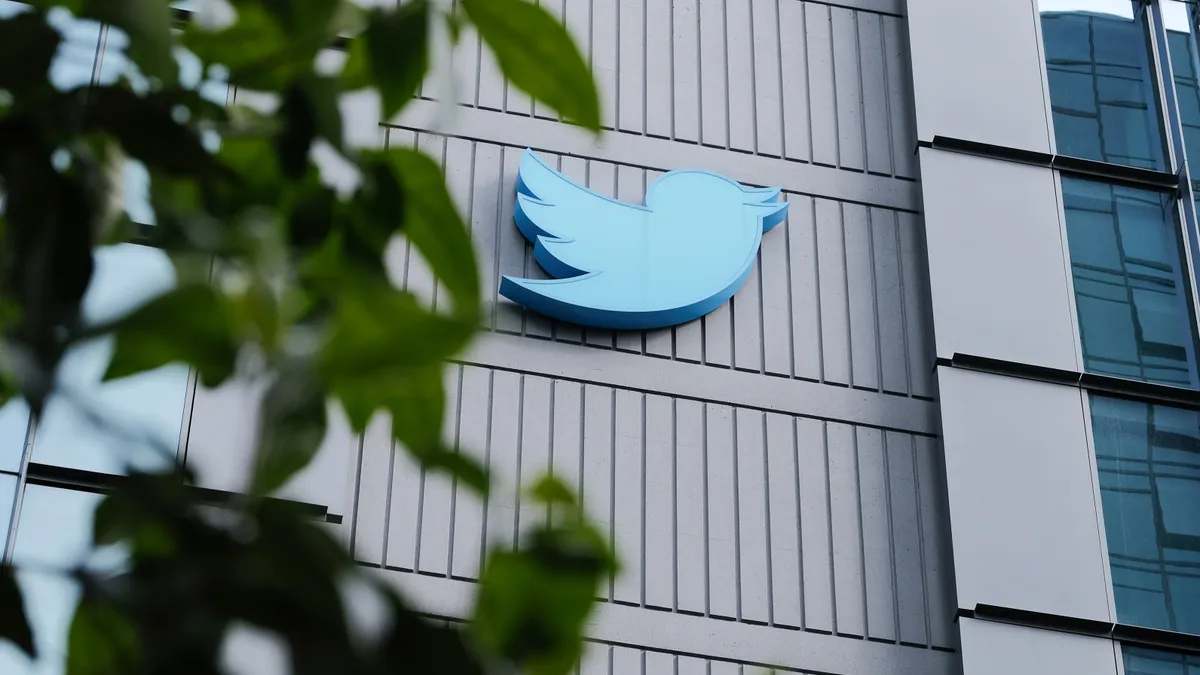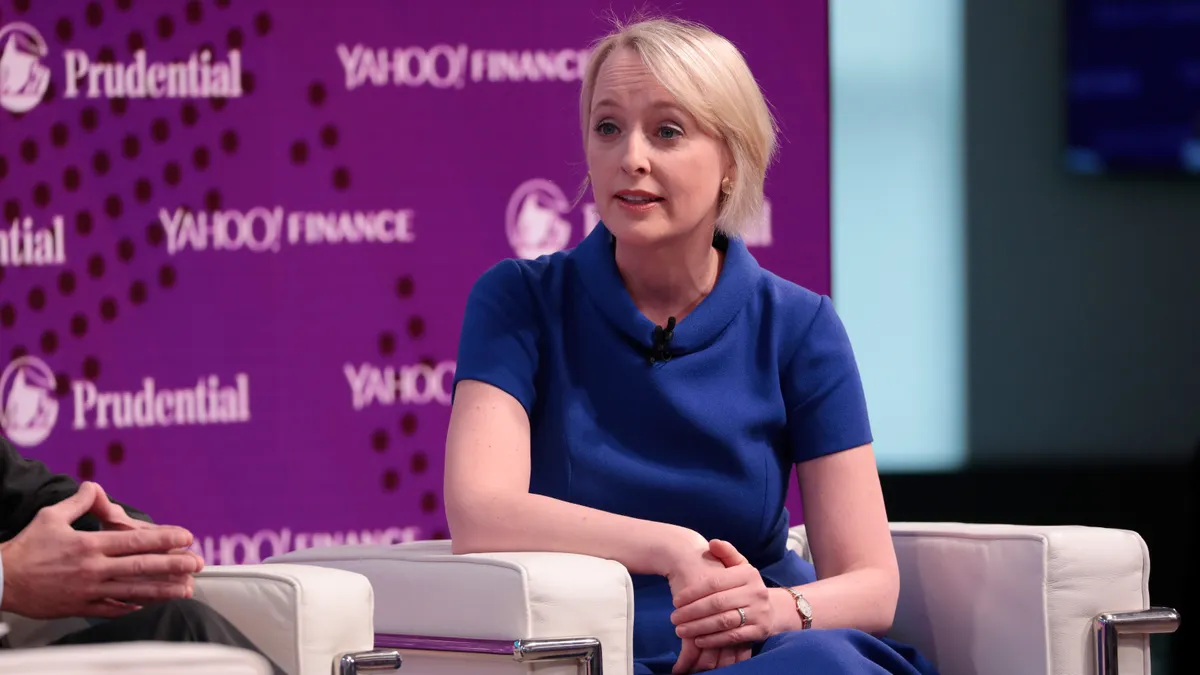Amid widespread layoffs at Twitter, which came not long after new owner Elon Musk fired the company’s legal chief and general counsel, there are likely to be a growing number of in-house lawyers from the social media giant seeking new jobs.
Current and former Twitter lawyers will find a softer hiring market than earlier this year, but they will still be attractive candidates for legal departments seeking to staff up, said Carol Simon, a San Francisco-based partner with Major, Lindsey & Africa’s In-House Counsel Recruiting practice.
She said attorneys from the company will benefit from Twitter being a well-known corporate brand, as well as their experiences in recent months as the company engaged in a high-profile legal battle with Musk regarding his efforts to back out of acquiring the platform.
“These are very well-tested attorneys, and I think that will serve them well in the market,” Simon told Legal Dive.
Brandy Russell, a partner who leads Marlin Hawk’s Legal, Risk, and Compliance practice, agreed that Twitter lawyers' experience “having to address a high volume of really critical issues in a short amount of time” will prove helpful in the job market.
“They’ve had to be really collaborative and embedded with the business to be able to keep them advised on what's happening, so that level of engagement is going to be very attractive to prospective employers,” Russell told Legal Dive.
Different business sectors
Russell said the increased use of technology across business sectors should also aid Twitter lawyers who are in the job market.
“Companies who have operated in traditional verticals and industries are having a renewed appreciation for the skill sets of technology-focused attorneys as companies become more global and become more digitized,” she said.
Simon said she could see former Twitter lawyers finding good job matches at other social media companies, as well as technology and e-commerce businesses.
Given Twitter’s headquarters is San Francisco, in-house lawyers who leave the company but want to stay in the region would likely consider any available opportunities at the many tech companies located in Silicon Valley.

“I think there will be some sympathy in the market to welcome them into a new organization, but it will depend on if those companies are able to hire,” Simon said. “Some of those companies are themselves in periods of retraction or downsizing.”
In recent days, a number of tech companies ranging from Amazon to Lyft have announced plans to either lay off staff or halt hiring.
While pharmaceutical and biotech companies have been hiring for legal posts, Simon said, Twitter lawyers may be less attractive to those businesses depending on their skill sets.
Helpful skill sets
Simon said lawyers with experience in securities, strategic transactions and litigation have increased chances of finding legal posts in other industries.
Twitter attorneys working in product counsel, intellectual property and First Amendment-focused roles might find transitioning to a new industry more challenging, she said.
“A securities lawyer might be very attractive even in a different industry than technology because securities is securities, and it is more fungible than say being a product counsel in a social media company or a technology company,” Simon said.
She and Russell both noted that data privacy attorneys are in high demand, particularly as the regulatory frameworks around data management are in flux.

“It's a pretty specific skill set and subject matter, so I think data privacy attorneys will be well-suited,” Russell said.
She said employment lawyers from Twitter, as well as those who have worked on governance matters, could also find their backgrounds beneficial in the marketplace.
Pay packages and flexible work
Twitter lawyers will be entering a hiring climate that is not as much as a candidate’s market as early this year, in part due to the softening economy and volatile political climate internationally.
As a result of there being less hiring activity, Simon said, candidates are being less picky about compensation, though she has not seen major drop-offs in that area.
But where she is seeing a significant shift is in the loss of leverage candidates have in establishing remote or flexible work arrangements.
“Six months ago and a year ago, the employee had the upper hand and they were saying to prospective employers, ‘I'm really interested in this job, but I'm not moving my family from here to there,’” Simon said. “We are now seeing that there's a bit more pushback from employers and more employers are saying, ‘Not so fast. We think actually that it's important that there is some on-site presence.’”
She said this does not mean employers want in-house lawyers in the office five days a week, but rather two or three days a week.
A 2022 survey from the Association of Corporate Counsel found that of the in-house lawyers working hybrid schedules, a combined 57% can work from home either two or three days a week.
Interim roles
While Twitter lawyers leaving full-time positions would likely prefer to find similar roles at other companies, they could also seek different work arrangements through flexible talent providers or options such as Major, Lindsey & Africa’s interim legal talent unit.
Simon said MLA is seeing an uptick in available part-time and temp-to-perm roles, particularly as the economy has faced headwinds.
Additionally, a recent report from flexible legal talent provider Axiom found there is growing interest among in-house attorneys in working for flexible talent platforms.
In-house counsel would almost equally consider a law firm (40%) or a flexible talent provider (39%) for their next position, while 34% would consider another in-house position, the report featuring a survey of 300 lawyers found.



















